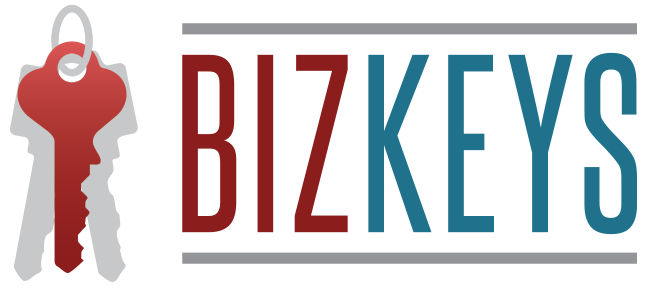Why Did DOL File Suit Against This Business?
(A case study from my Wage and Hour Division enforcement career)
I investigated a transportation business that had classified its drivers as independent contractors and paid them a percentage of revenue derived from their hauls. No overtime wages had been paid. The motor carrier exemption did not apply (rock was hauled from Texas quarries to Texas construction sites). The drivers worked long hours, in part because of arriving several hours before the quarry opened in order to be near the front of the line.
The “final conference” (to disclose findings) was conducted with the owners and management officials, and the firm’s attorney, at the attorney’s office. I explained that the drivers are FLSA employees and that they are subject to FLSA provisions (including overtime compensation). I explained how to comply (required records, hours worked rules, correct way to compute overtime wages, etc.). Before I could ask for an agreement to comply, the attorney went on a tirade against me personally and the DOL. He stated that I had no business even investigating his clients, as they were doing nothing wrong, and that the drivers are independent contractors. I finally was able to insist on an agreement to comply, but that was a mere formality. The attorney continued to insist that the drivers are not employees, and that his clients will not pay overtime compensation.
DOL policy is that, when an employer refuses to comply, the case is referred to the DOL Solicitor for injunctive action to secure a court order for compliance and payment of back wages. I submitted the case file to my superiors with a litigation recommendation. After suit was filed, another investigator and I spent several days copying records in the defendants’ office. At a deposition hearing, the defendants and their new attorney apologized for the rudeness of the initial attorney. I informed them that I had dealt with very few attorneys who were less than diplomatic, and that the initial attorney in this case was far from representative of the legal profession. The new attorney agreed with that assessment.
Settlement was ultimately reached, the defendants agreed to an injunction, and back wages were paid.
This case would not have been considered for litigation had the employers agreed to comply and to pay back wages. Even upon their initial reluctance to comply, they would have been afforded an opportunity to meet with the Wage and Hour Division District Office management prior to a litigation decision had their representative been reasonable. Resolution was clearly possible at much less expense and inconvenience to the owners of this business.
Suggestions for employers from this experience:
- Much time and money can be saved by conducting a self-audit. This should be accomplished long before you become the subject of a DOL investigation.
- Ensure that your employment relationship and exemption determinations are correct and that your pay plans meet FLSA requirements.
- If nonexempt employees are paid commissions, make certain that overtime wages are being correctly computed. This DOL opinion letter http://www.dol.gov/whd/opinion/FLSANA/2008/2008_09_22_12NA_FLSA.htm includes a clear explanation of the correct method to be used in computing overtime compensation. The same approach is usually applicable to job rate or piece rate arrangements.
- If your FLSA practices are questioned by a DOL investigator –
- Listen to the explanations provided and ask relevant questions.
- Keep in mind that it is possible to disagree with the investigator without being arrogant.
- If you are not convinced that the investigator is correct in his/her assertions, request a “second level” conference with a District Office management official.
- If you have representation, make certain that your attorney will not be a “loose cannon” and that he/she is knowledgeable of the FLSA (or is willing to learn).
- Do not refuse to make needed corrections until you are certain that “fighting the battle” will be worth the investment.
Concluding Remarks
If the Wage and Hour Division conducts an investigation of your business or organization, be open-minded as to the possibility that there are violations. The investigator is probably more knowledgeable of technical FLSA rules than you or your attorney. However, that does not mean that you should not raise questions. DOL investigators do make mistakes. In some cases, the investigator reaches conclusions without considering key facts. Exemptions are occasionally overlooked. An intelligent and open-minded dialogue can encourage the investigator to reconsider the initial conclusions. Even if the assertions are essentially correct, there might at least be room for negotiation. The investigator should agree to allow you or your attorney a reasonable period of time (at least a week) to review the matter. Further, as I previously indicated, it is often productive to request a meeting with a District Office management official to discuss unresolved issues.
During the “final conference” or other discussions with the investigator, make extensive notes. A written report will not be provided to you.
If the investigator presents a “summary of unpaid wages” and asks you to sign it, do not do so until you are convinced that you owe the back wages and that computations have been done accurately. You have the right to secure a copy of computations.
You should always consider obtaining representation when under DOL scrutiny. DOL does not have the authority to prevent an employer from securing professional guidance. In more than three decades of DOL enforcement experience, I dealt with hundreds of attorneys and consultants. They generally “brought to the table” knowledge, expertise, and negotiating ability that the employer did not possess. The attorney in this case study was clearly an exception.
I encourage you to review the self audit guide I prepared for BIZKEYS. This self audit guide “Wage & Hour – Fair Labor Standards Act (FLSA)” can be found in the Self Auditing section of the BIZKEYS website.
You can contact Mr. Jennings at: Morris@FLSA-SCA.com

